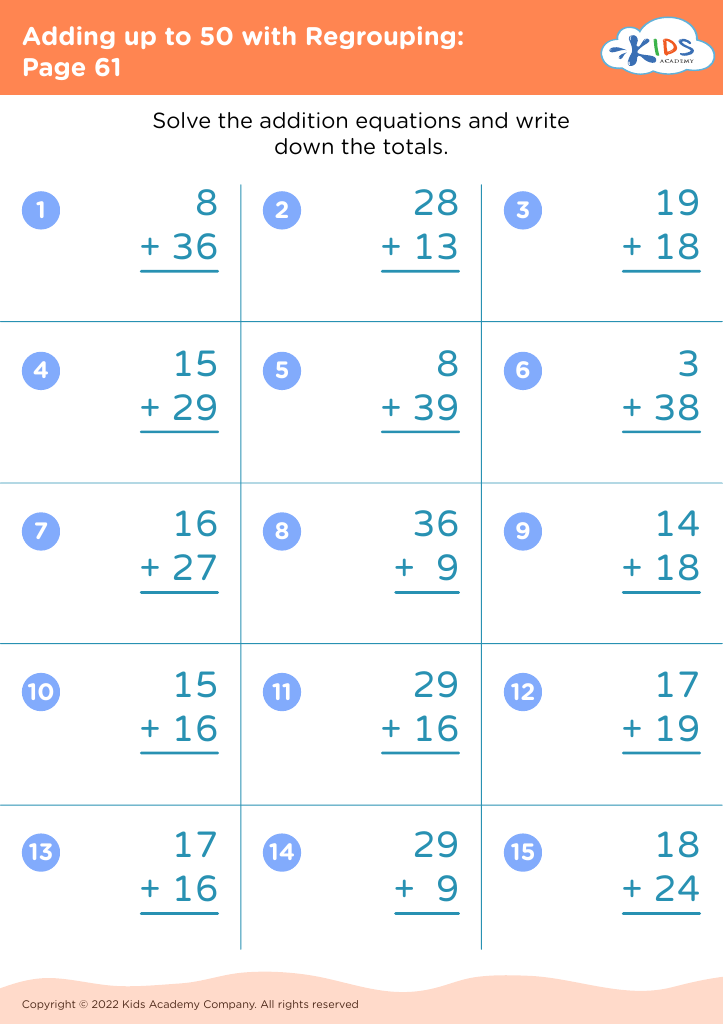Practice inference skills Addition & Subtraction Worksheets for Ages 5-8
3 filtered results
-
From - To
Enhance your child’s math journey with our engaging Addition and Subtraction Worksheets designed for ages 5-8! These thoughtfully crafted activities focus on fostering inference skills, allowing young learners to decode mathematical problems and make connections between numbers through critical thinking. With a variety of fun exercises that incorporate real-life scenarios, children will practice essential addition and subtraction skills while developing their ability to infer and deduce. Ideal for both classroom use and at-home learning, our worksheets encourage creativity and deeper comprehension, ensuring that kids not only solve problems but also understand the reasoning behind their solutions. Perfect for young mathematicians eager to explore!
Parents and teachers should prioritize the development of practice inference skills in addition and subtraction for children aged 5-8 because these skills form the foundation for critical mathematical understanding. At this age, children begin transitioning from concrete representations of numbers to more abstract concepts. By engaging in exercises that promote inference skills, children learn to analyze, interpret, and draw conclusions from numerical information, which enhances their problem-solving abilities.
Developing inference skills in early learners fosters confidence and encourages a growth mindset. As they practice deduction and reasoning related to addition and subtraction, children start to understand patterns and relationships among numbers, which is vital for tackling more complex mathematical concepts later on. Furthermore, these skills promote cognitive development, aiding children in forming connections across various subjects.
Additionally, early mastery of addition and subtraction aids in everyday life situations, setting the stage for financial literacy, measurement, and logic. Encouraging practice in inference ensures children can approach challenging problems strategically, making math enjoyable rather than daunting. Ultimately, focusing on these skills supports overall academic success and prepares children for lifelong learning while fostering a love for mathematics.



















